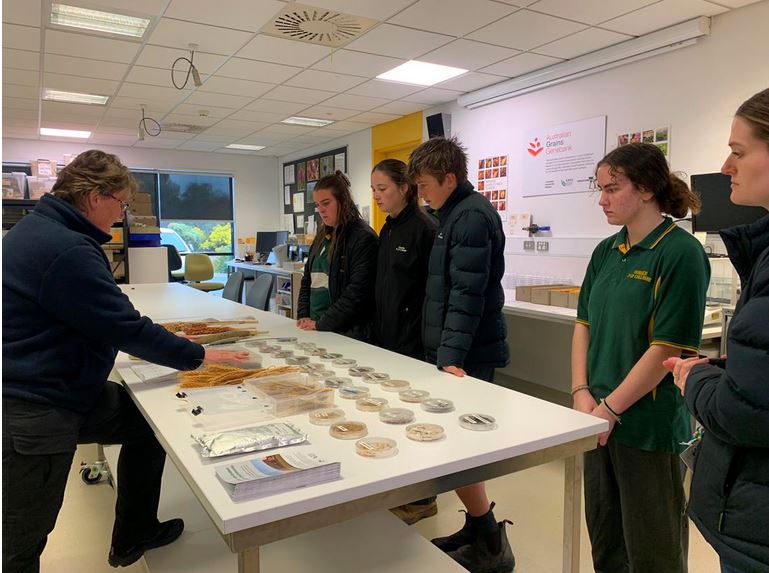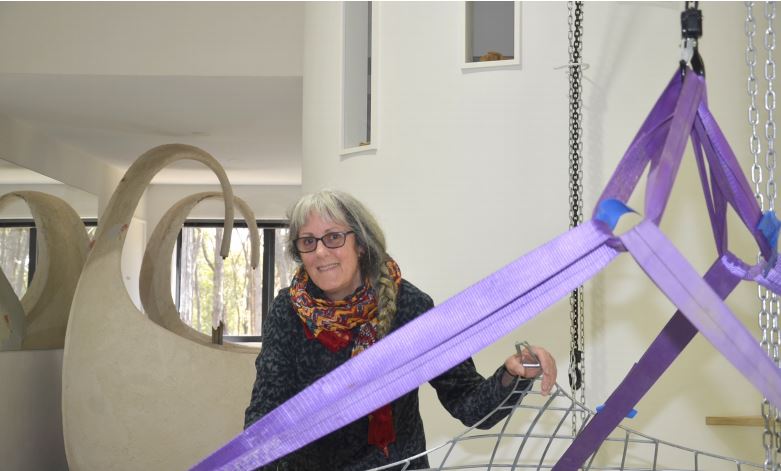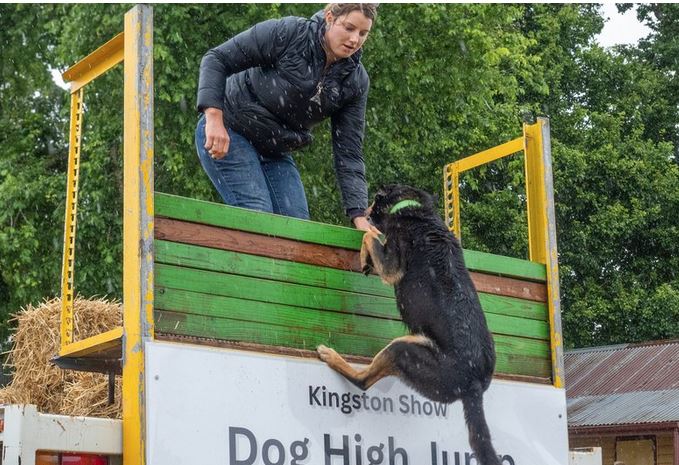September 25th, 2023Preparing for a tougher future: A closer encounter with FATE

Agriculture Victoria’s Horsham SmartFarm recently provided local students hands-on experience of climate action research, with a focus on preserving important grains and plants for the future.
The visit was by a group of students who are currently studying Agricultural and Horticultural Science at Goroke P-12 College.
Their study delves into how new technology assists in the production and conservation of plants, including acknowledging the effects of climate change and how this can support farmers into the future.
Organised by Agriculture Victoria Senior Research Scientist, Ashley Wallace, the students toured the Horsham SmartFarm’s research and innovation facilities.
Students were taken to see the Free Air Temperature Extreme (FATE) facility, a set of computerised, custom-engineered trolleys mounted with infrared heaters.
‘The FATE project aims to help scientists better understand the impact of heatwaves on crops.
‘Heatwaves at critical times can cause major losses in grain production on farms’, Mr Wallace said.
He said the students also toured the Australian Grains Genebank.
‘Students were presented with the differences in crop varieties grown in Australia compared with other parts of the world and were shown how seeds are carefully preserved in the Genebank for plant breeders and future generations,’ Mr Wallace said.
Guided by Agriculture Victoria researchers, students took part in a demonstration on how researchers use high tech equipment to measure quality traits in grains in the crop quality laboratory.
Mr Wallace explained how this research studies the colour of lentil grain and the quality of dough and bread made from the flour of different wheat varieties and breeding lines.
To end the visit the students took a tour of the Digital Centre for Agriculture, where they saw modern technology that looks to increase the productivity, profitability and sustainability of Victorian grain growers.
Mr Wallace said the technology will be used by farmers in the future to better manage grain crops.
The students reported they are looking forward to applying the knowledge gained from the trip to their studies as they prepare to enter the final units of the subject in 2024.
Student Lucinda Smith said of the trip, ‘it was an exciting, educational and fun experience that I really enjoyed’.










